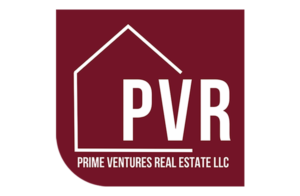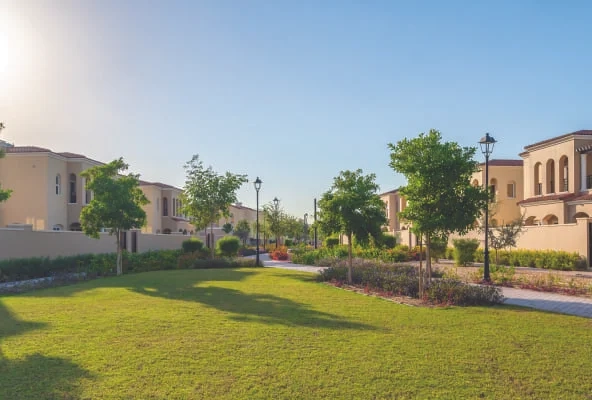Dubai Real Estate Buying Guide: What You Need to Know Before You Invest
Guide to Buying Real Estate in Dubai 2024
Dubai’s real estate market has long been a magnet for international investors, offering a wide range of opportunities from luxury apartments to sprawling villas, and commercial spaces to off-plan properties. Whether you’re a first-time buyer or a seasoned investor, purchasing property in Dubai requires a clear understanding of the process, legalities, and market dynamics. This comprehensive guide will walk you through everything you need to know before buying real estate in Dubai in 2024.
1. Why Invest in Dubai Real Estate?
Dubai’s appeal as a real estate investment hub is due to several factors:
- Tax-Free Benefits: No property taxes or capital gains taxes for investors.
- Strong ROI: Dubai consistently offers some of the highest rental yields in the world, with returns ranging between 5-9% annually.
- Global Hub: Its strategic location between Europe, Asia, and Africa makes it a popular destination for expats, tourists, and business professionals.
- Growing Economy: Dubai’s economy continues to expand, fueled by sectors like tourism, finance, and trade, contributing to the demand for real estate.
2. Determine Your Purpose
Before diving into the property market, it’s important to determine your purpose for buying:
- Investment: Are you seeking rental income, capital appreciation, or both?
- Personal Use: Are you looking for a family home or a vacation property?
- Business: Are you purchasing commercial property for a business operation or as an investment?
Clarifying your purpose will help you select the right type of property and location.
3. Freehold vs Leasehold Properties
Dubai offers two types of property ownership:
- Freehold: Allows foreign nationals to own property outright in designated areas. These areas are called freehold zones and include popular locations like Downtown Dubai, Dubai Marina, and Palm Jumeirah.
- Leasehold: In leasehold areas, you can lease property for up to 99 years, but ownership remains with the original landowner.
Most foreign investors prefer freehold properties, which offer complete ownership and flexibility.
4. Popular Areas for Investment
Dubai offers a diverse selection of neighborhoods, each with its own unique features and advantages. Some of the most popular areas for buying real estate include:
- Downtown Dubai: Known for luxury apartments with close proximity to Burj Khalifa and Dubai Mall.
- Dubai Marina: Popular among expats and tourists, known for high rental yields.
- Palm Jumeirah: Ideal for luxury buyers seeking waterfront villas and penthouses.
- Dubai Hills Estate: A family-friendly community with villas and townhouses, offering excellent long-term investment potential.
- Business Bay: A central location for commercial properties and luxury apartments, favored by business professionals.
5. Off-Plan vs Ready Properties
When buying real estate in Dubai, you can choose between off-plan and ready properties:
- Off-Plan Properties: These are properties that are still under construction. Off-plan properties often offer lower prices, payment plans, and the potential for capital appreciation by the time the project is completed. However, they carry risks such as construction delays or changes to the project.
- Ready Properties: These are completed properties that are ready for immediate occupation or rental. They tend to have higher initial costs but offer immediate returns through rental income or personal use.
6. Financing Options
If you need financing to purchase your property, Dubai offers several options for both residents and non-residents:
- Mortgages: Both residents and non-residents can apply for mortgages through local banks. Non-residents typically need to make a down payment of at least 20-30%.
- Payment Plans: Many developers offer attractive payment plans, particularly for off-plan properties. These plans often allow you to pay in installments over the construction period and after handover.
7. The Legal Process for Buying Property
Buying property in Dubai is a straightforward process, but it’s important to follow the correct legal steps:
- Reservation Agreement: Once you’ve chosen a property, you’ll sign a reservation agreement and pay a reservation fee (typically 5-10% of the property price).
- Memorandum of Understanding (MOU): This is the formal agreement between the buyer and seller, outlining the terms of the sale. At this point, you’ll pay a 10% deposit to secure the property.
- No Objection Certificate (NOC): The developer or authority must issue an NOC stating that there are no outstanding liabilities on the property.
- Transfer of Ownership: At the Dubai Land Department (DLD), the ownership will be officially transferred to the buyer. A transfer fee of 4% of the property value is paid to the DLD.
8. Costs and Fees to Consider
Beyond the property price, there are several additional costs to factor into your budget:
- DLD Transfer Fee: 4% of the property value.
- Agent’s Commission: Typically 2% of the property price.
- Mortgage Arrangement Fee: If you’re taking out a mortgage, the bank may charge an arrangement fee, usually 0.25-1% of the loan amount.
- Service Charges: Depending on the property, you’ll need to pay annual service charges for maintenance and upkeep of the building or community.
9. Documents Required
To complete a property purchase in Dubai, you’ll need the following documents:
- For Residents: Emirates ID, passport copy, and proof of residency.
- For Non-Residents: Passport copy, proof of address in your home country, and possibly proof of income if applying for a mortgage.
10. Hiring a Real Estate Agent
While it’s possible to navigate Dubai’s property market on your own, hiring a professional real estate agent can make the process smoother. A knowledgeable agent can help you:
- Find the right property based on your needs and budget.
- Negotiate the best price.
- Guide you through legal procedures and paperwork.
- Provide insight into market trends and potential investment opportunities.
11. Tips for First-Time Buyers
- Research the Market: Stay informed about market trends and property values in your desired area.
- Inspect the Property: Whether it’s off-plan or ready, make sure you thoroughly inspect the property and its surroundings.
- Understand the Community: Research the community to ensure it aligns with your lifestyle or investment goals.
- Work with Trusted Professionals: From agents to legal advisors, working with experienced professionals ensures a smooth and secure transaction.
Conclusion
Dubai’s real estate market offers a world of opportunities, but it’s essential to enter the market with a clear understanding of the process and your investment goals. Whether you’re looking for a luxury villa, an investment apartment, or commercial property, at Prime Ventures Real Estate, we specialize in guiding buyers through every step of the process. Contact us today to explore the best properties in Dubai and secure your place in one of the world’s most dynamic real estate markets.




